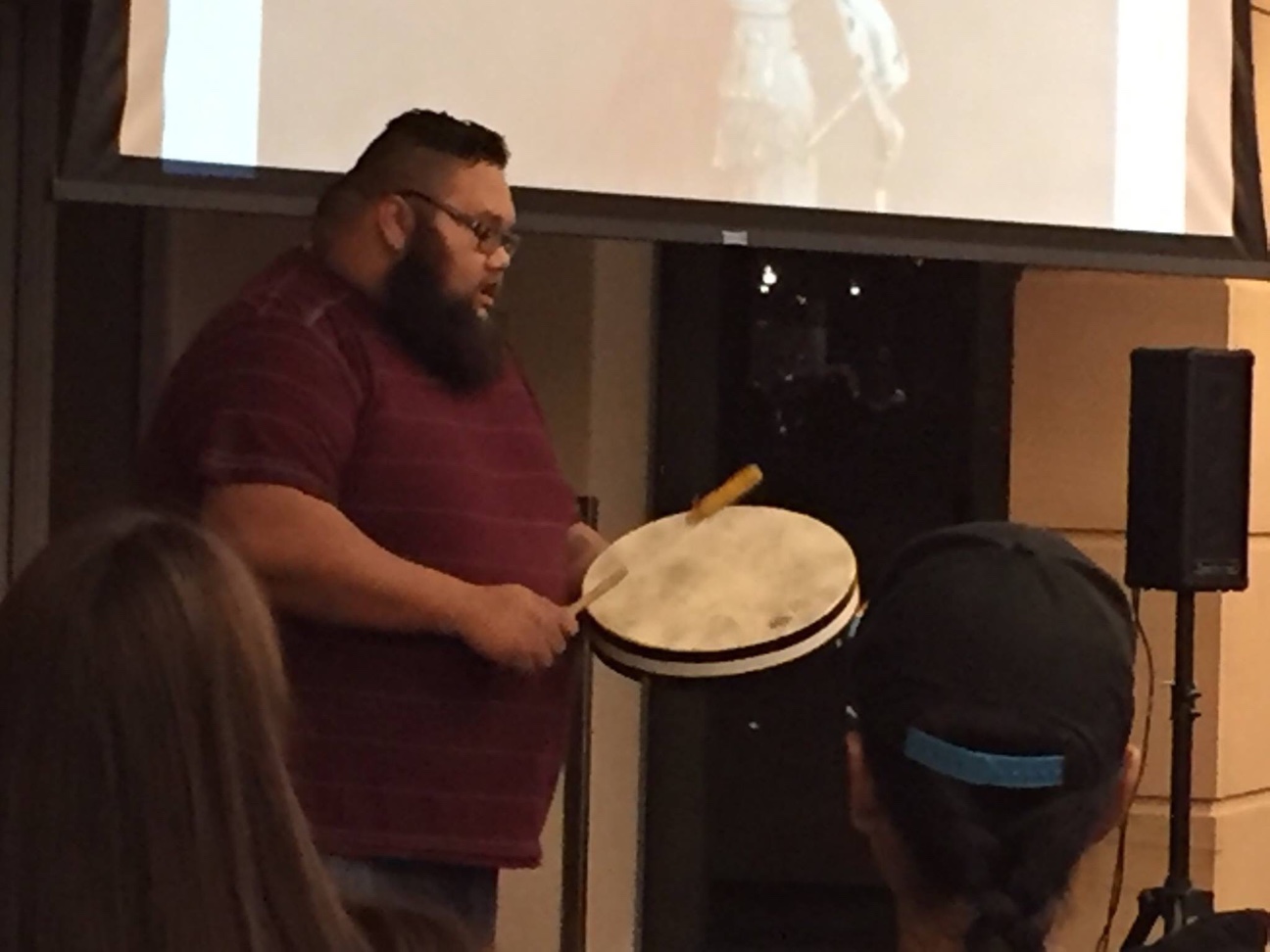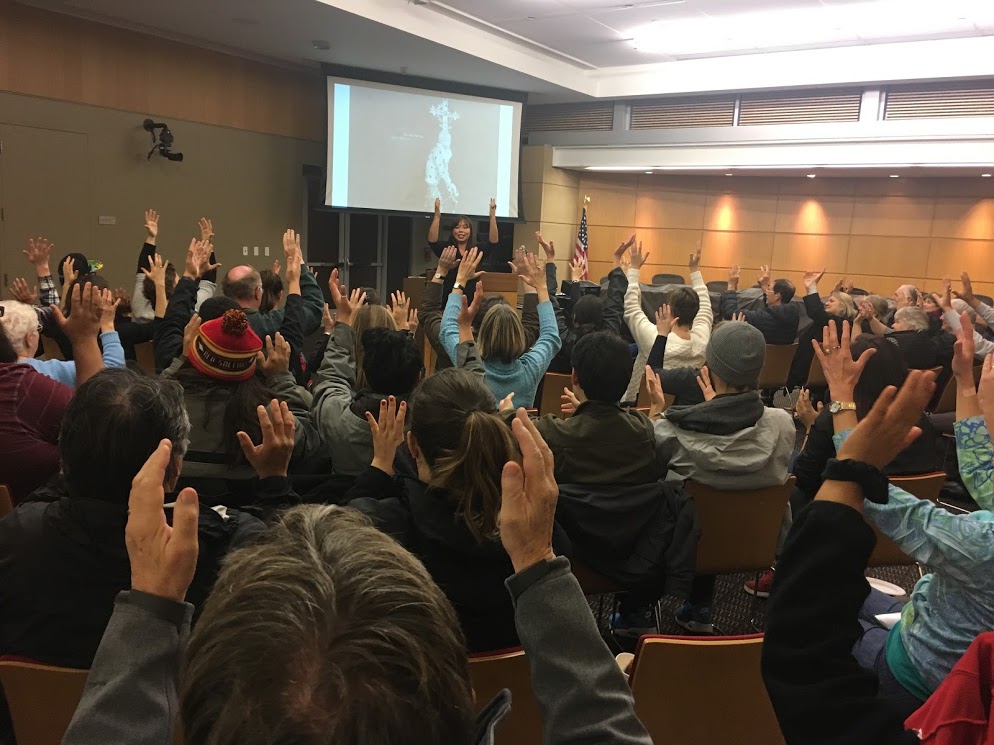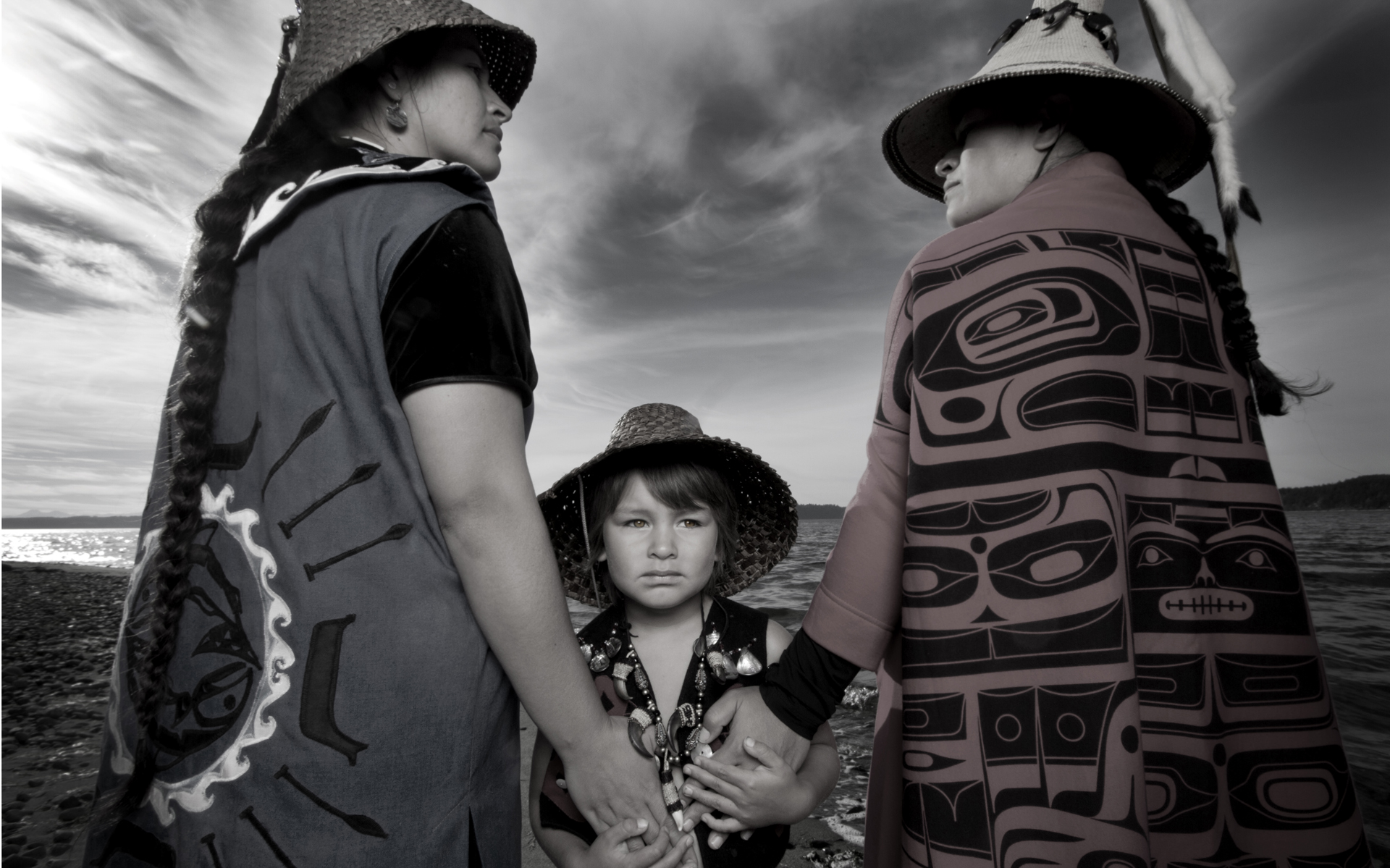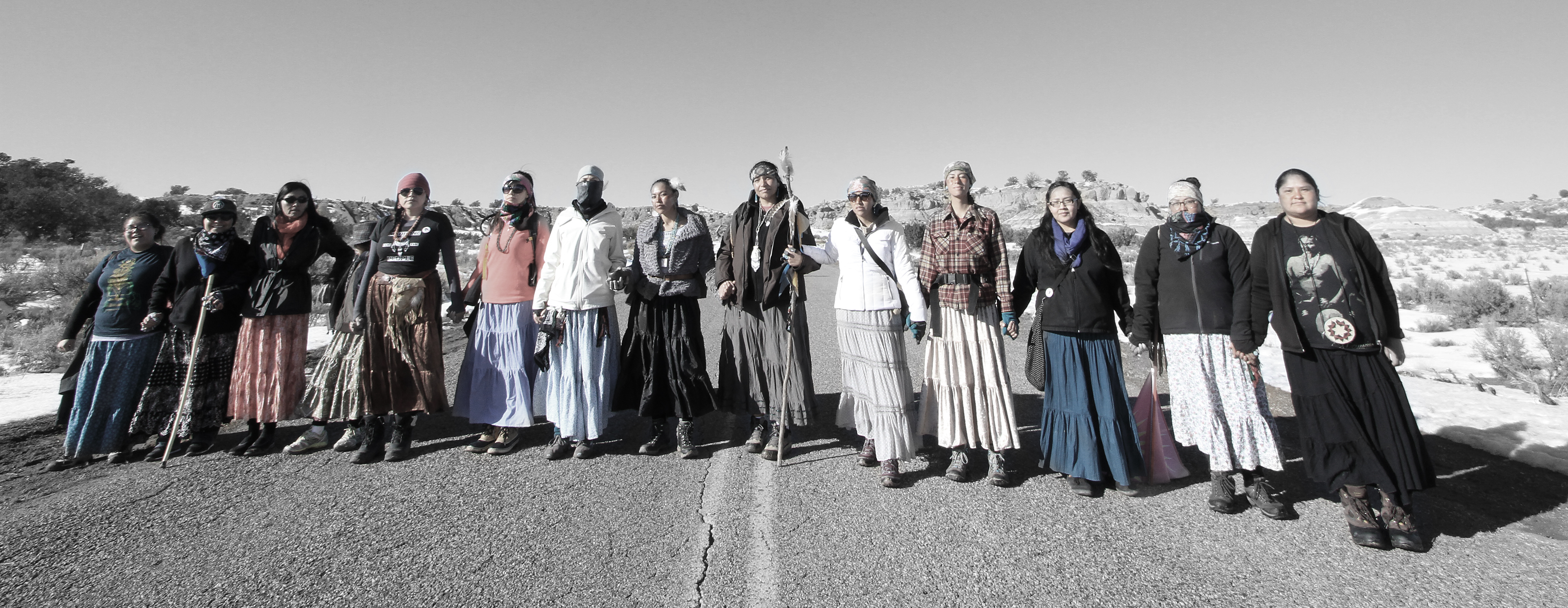Last week, I was fortunate enough to attend an event at the Burien Library (where I also happen to work) entitled Changing the Way We See Native America: Dismantling Native American Stereotypes, featuring Pacific Northwest photographer Matika Wilbur. I went into the event expecting to see some beautiful photographs (which I certainly did see), but I came out feeling transformed and energized by Matika's words.
The event began with a performance of a welcome song performed by Deyo Esquivel (Mohawk). He reminded us that Native Americans are "not just figments of the past" as he welcomed us onto Duwamish land. Ken Workman, Duwamish tribe council member and 4th generation grandson of Chief Seattle, welcomed the audience as well, teaching us how to say "Thank you" in many different tribal languages from around the area. The welcoming tone set by these gentlemen filled the room with a warmth that felt like family, despite the fact that I was in the room with 85 strangers.
Matika Wilbur took the stage next, and the first thing of beauty she showed us was her smile and her contagious laughter. The topic she came to speak about carries a lot of weight, which she emphasized, but not without balancing that heaviness with humor. She started her presentation with a blessing, in which the entire audience participated. She raised her hands to us, we raised our hands to each other, we blessed ourselves, and we were encouraged to "share some medicine with the person next to you."
Matika spoke about a lot of powerful topics and told a number of personal stories about the people she photographed. Here are three of the many messages that hit me squarely in the heart as I listened to her presentation:
1. "We are all interconnected."
Matika made the important point that we often forget that there is humanity everywhere and overwhelming kindness in places we may not expect it. She talked about this in terms of the structure of indigenous languages, teaching that indigenous languages are verb-based, rather than noun-based. For example, someone is "man-ing" or "woman-ing," rather than someone is a "man" or "woman." She explained that nouns objectify and separate people from one another and their actions and that having a verb-based language doesn't allow for that sense of separatism. This helped me understand and appreciate this concept of interconnectedness. It's really quite beautiful to think about this core message as something so vital that it is a part of the language. Just imagine if we shifted our way of thinking about the world around us to reflect this concept.
2. "If they are cold and suffering, I am cold and suffering."
At the time of this presentation, Standing Rock demonstrators were still being blasted with water cannons in below-freezing temperatures, so this message was especially poignant. However, she extended this sentiment to all groups of people who are suffering right now, specifically members of the Muslim community and the #BlackLivesMatter movement. This message is one that is especially relevant given our current political climate, but it's not a new message, especially in the indigenous community. She spoke of the importance of repeating this statement to ourselves as we think about the suffering of others, especially when it is so tempting to ignore that which doesn't affect us directly.
3. "When we're not required to know each other, we become afraid of each other."
This statement, at this time in our country, is painfully accurate and immensely important. She illustrated this point by talking about cultural education vs. western education. We are required to learn science and math in school, but cultural learning is often elective in western educational systems. Matika pointed out that if cultural education and western education were given equal value and equal resources, maybe we wouldn't be so afraid of cultures and beliefs that are "different" from what we know. I wish I could hire a sky-writer to spread this message everywhere, because it's a statement that merits repeating all over the world, but for now, I think Matika is doing an excellent job spreading the word through her efforts, especially Project 562, which "creatively addresses and remedies historical inaccuracies, stereotypical representations, and the absence of Native American images and voices in mass media and the national consciousness."
For more reading material on "Today's Native America," check out this awesome list put out by the library system's Diversity Committee.





